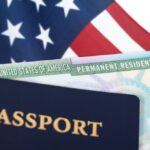This August marks the two-year anniversary of the Taliban’s return to power in Afghanistan. During this two-year period, the United States has welcomed over 90,000 Afghan evacuees through Operation Allies Welcome. Since 2021, resettlement agencies, state agencies, and community-based organizations have worked tirelessly to support Afghan newcomers’ integration into local communities. As the process of integration continues, both strengths and challenges continue to arise and evolve. This post shares resources that will help service providers better assist Afghan newcomers. The external resources contained in this blog post represent the views and opinions of their original creators and do not necessarily represent the views or opinions of Switchboard.
Cross-Cutting Resources
Settle In is available in 12 languages, including Pashto and Dari, and includes multi-lingual, multimedia resources on employment, housing, education, health, community services, rights and responsibilities, money management, cultural adjustment, and many more topics. Settle In Help Center articles, also available in Pashto and Dari, cover topics like Facts About the Re-Parole Profess for Afghans; Afghans Crossing the Mexican Border to the U.S.; Afghan Family Reunification, and more. The Settle In for Afghans Facebook page offers in-language information, live events, and the ability to direct message with trained and experienced Dari- and Pashto-speaking Digital Community Liaisons.
The Virtual Resettlement Line (VRL) is a one-stop resource for Afghan and Ukrainian humanitarian parolees who are not yet connected to a resettlement agency or struggling to access their community’s benefits or resources. VRL can be reached 9:00 AM – 5:00 PM ET Monday – Friday by calling +1 (212) 551-3010 or emailing VRL@rescue.org. VRL’s virtual navigators speak English, Ukrainian, Russian, Dari, and Pashto.
Immigration Legal Needs
As the initial parole periods end and more Afghans obtain other statuses, their current immigration legal needs may be related to family reunification, re-parole, adjustment of status, continued employment authorization, and asylum.
In partnership with Switchboard, VECINA offers Weekly Office Hours for Legal Questions Related to Operation Allies Refuge (OAR) Parolees. These sessions are for lawyers and accredited representatives working at ORR-funded organizations with questions about immigration cases for OAR parolees. Please use this Zoom Link to join the Office Hours every Thursday from 2:00 – 3:00 PM ET.
Immigration Legal Services for Afghan Arrivals (ILSAA) is a project funded by the Office of Refugee Resettlement (ORR) and implemented by the U.S. Committee for Refugees and Immigrants (USCRI) to provide immigration legal services at no cost to Eligible Afghan Arrivals (EAAs) across the country. EAAs include Afghan humanitarian parolees, unaccompanied Afghan minors, and others with eligible status as defined in ORR Policy Letter 22-01. It also helps build the capacity of immigration legal service providers (LSPs) to engage in these services.
- Webinar: Demystifying Filing for Afghan Re-Parole with USCIS: Providing Clarity and Guidance for Providers (Switchboard and VECINA)
- Blog Post: Resource Collection: Legal Services for Afghan Newcomers (Switchboard)
- Blog Post: Resource Collection: Getting Started in Navigating ORR Eligibility (Switchboard)
- Blog Post: What Federal Benefits and Services are Available to Afghan Parolees? (Switchboard)
Economic Empowerment
Afghan newcomers bring a range of skills, education levels, and professional backgrounds to their new communities in the United States. Providers supporting these clients in their career journeys may encounter needs related to job readiness coaching and support, licensure and certification requirements, “soft skills” like interviewing and networking, and employer bias.
- Guide: Hiring Afghan Humanitarian Parolees: What Service Providers and Employers Need to Know (S. Department of Justice Civil Rights Division’s Immigrant and Employee Rights Section)
- Blog Post: A Roadmap for Employers Hiring Afghan Newcomers (Switchboard and Tent)
- Webinar: Supporting Afghan Newcomers with Professional Backgrounds: Barriers, Opportunities, & Resources (Switchboard and Upwardly Global)
- Blog Post: Serving Jobseekers with Professional Backgrounds: Workforce Resources for Clients and Staff (Switchboard and Upwardly Global)
- Blog Post: Supporting Job Seekers with Backgrounds in Aviation: Ideas and Resources for Service Providers (Switchboard and Upwardly Global)
- Blog Post: Helping Newcomers Access WIOA-funded Adult Integrated Education and Training (IET) (Switchboard)
Mental Health and Wellness
Due to the circumstances of their forced displacement, Afghan newcomers have likely been exposed to a multitude of potentially traumatic events. Though Afghan newcomers are incredibly resilient, these experiences may have a lasting impact on their mental health and wellness. Providers should seek to be aware of Afghan newcomers’ mental health needs and offer appropriate support if necessary.
In December 2022, with funding from the Office of Refugee Resettlement (ORR), the U.S. Committee for Refugees and Immigrants (USCRI) launched the Post-Resettlement Behavioral Health Support Program for Afghan Arrivals. This program is designed to increase access to behavioral health services for Afghan Placement and Assistance Program (APA)-eligible clients throughout the United States. USCRI and its partners provide a novel interdisciplinary approach with culturally tailored, trauma-informed psychosocial services through four main program components: a 24/7 national crisis hotline, telehealth services, community field teams, and crisis response teams.
- Blog: Are You Serving Afghan Clients with Mental and Behavioral Health Needs? A New National Program Can Help (Switchboard)
- Webinar: Psychological First Aid (PFA) to Support Clients Affected by the Crisis in Afghanistan (Switchboard)
- Tip Sheet: Being Culturally and Trauma-Informed While Assisting Displaced Afghan Families (NCTSN)
Health Care
The U.S. health care system can be especially challenging to navigate. Afghan newcomers may need support from service providers to enroll in health insurance, complete health screening, access primary and specialist care, and overcome language barriers through interpretation services.
- Guide: Brief Overview for Clinicians Caring for Afghan New Arrivals (Center of Excellence in Newcomer Health)
- Webinar: Afghan Culture and Health Screening Considerations (Center for Excellence in Newcomer Health)
- Guide: Health Coverage Options for Afghan Evacuees (Center for Medicare and Medicaid Services)
- Webinar: Best Practices for COVID-19 Prevention and Mitigation Among Afghan Communities (National Resource Center for Refugees, Immigrants, and Migrants – NRC-RIM)
- Resource Collection: COVID-19 Resources for Afghan New Arrivals (NRC-RIM)
- Webinar: Assisting Newcomers with Navigating the U.S. Health Care System: An Introduction for Direct Service Providers (Switchboard)
Cultural Considerations
Providers seeking to serve Afghan newcomers may need information on Afghan history, cultures, ethnicities, languages, and religions:
- Webinar Series: Cultural & Practical Considerations for Working with Afghan Clients (Switchboard)
- Guide: Who are the Afghan Newcomers? (CORE)
- Guide: Afghan Cultural Backgrounder (CORE)
- Guide: Faith-based Healing among Afghan Muslims: Guidance for Refugee Service Providers in the U.S. (Switchboard)
- Blog Post: Supporting Afghan Clients’ Food Needs during Ramadan (Switchboard)
- Webinar: Service Provider Roundtable: Supporting Afghan Women (Canadian Women’s Foundation)
- Guide: A Handbook for Teaching English to Afghan Women Refugees (University of San Francisco)
Youth Education
Beginning with the 2021–22 school year, schools across the United States enrolled significant numbers of children and youth from Afghanistan. While many schools and communities have a long history of welcoming refugee and immigrant students, educators and school districts may need additional learning resources given the large number of arriving Afghan students.
- Toolkit: Supporting Afghan Students in Schools & Youth Programs in the United States (Switchboard)
- Archived Webinar: Welcoming Afghan Newcomer Students Back to School (Switchboard)
- Can Afghan Newcomers Access Title IV, Federal Student Aid? Answering FAQ’s About New Guidance from the U.S. Department of Education (Switchboard)
- Guide: School Enrollment for Students in Temporary Housing (Switchboard)
Housing
As the housing market shifts and rent prices continue to increase across the U.S., the strain on refugees and other newcomers seeking affordable housing continues to grow. Afghan newcomers are among those facing these challenges.
- Guide: Operation Allies Welcome: Housing and Urban Development (HUD) Programs & Resources (Department of Housing and Urban Development)
- Blog Post: Innovative Housing Spotlight: Partnership with a College Campus to Welcome Afghan Families (Switchboard and Refugee Housing Solutions)
- Toolkit: Navigating Online Housing Resources & Housing Search (Refugee Housing Solutions)
- Toolkit: Creating Your Welcoming Landlord Network (Welcoming America)
Looking for More Resources?
Additional resources for Afghan newcomers are available here, in the Switchboard library.









